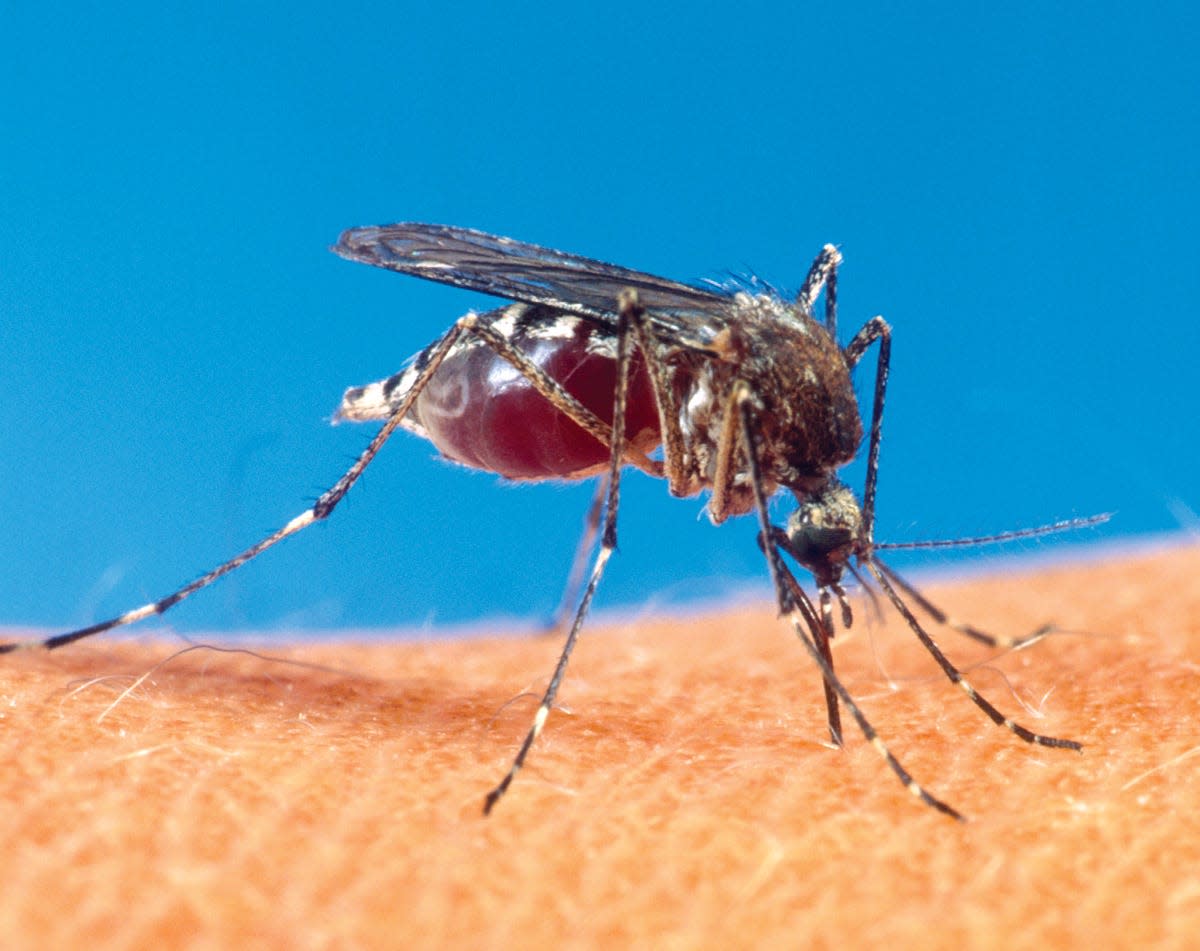Wisconsin has its first confirmed case of West Nile virus in a horse for 2022. Here's what to know.

Wisconsin has its first confirmed case of West Nile virus in a horse for 2022, according to the state's Department of Agriculture, Trade and Consumer Protection.
An unvaccinated yearling Standardbred gelding in Trempealeau County tested positive for the virus, a Monday news release from the DATCP said.
Here's what to know, from how the virus presents itself in horses to how it's transmitted to both horses — and people.
What are the symptoms in horses?
According to the news release, symptoms of West Nile virus in horses include:
Fever
Incoordination
Hind-end weakness
Depression
Loss of appetite
Muscle tremors
Teeth grinding
Inability to swallow
Head pressing
Excessive sweating
Going down with an inability to rise
Inflammation
How fatal is the virus in horses?
West Nile virus is fatal in 30% to 40% of horses showing signs of illness, the news release said.
If you have a horse, what does the DATCP recommend?
The DATCP is encouraging equine owners to speak with their veterinarians about vaccinating their horses for West Nile virus, and also limit their horse's exposure to mosquitoes.
"The American Association of Equine Practitioners (AAEP) recommends vaccinating for both West Nile Virus and Eastern Equine Encephalitis as part of the core vaccine protocol, meaning all horses should be vaccinated for these diseases," the DATCP news release said.
There are currently no vaccines to prevent or medications to treat the virus in people, the CDC's website said.
Can the virus pass between people and horses?
No, the virus does not pass directly between people and horses, the DATCP news release said.
The virus is spread through the bite of an infected mosquito, according to the CDC's website.
"Mosquitoes transmit the virus from birds, which serve as natural reservoirs for WNV," the news release said.
When do most cases of West Nile virus occur in the United States?
According to the CDC's website, West Nile virus cases occur during mosquito season, which starts in the summer and continues through fall.
How many Wisconsinites usually get West Nile virus?
According to data on the Wisconsin Department of Health Services' website, an average of 21 West Nile virus cases were reported each year in the state from 2016 through 2020.
In 2021, Wisconsin had five confirmed human cases and one probable human case, a case data chart on DHS' website said. Probable cases have presumptive positive laboratory results without confirmatory testing at the Centers for Disease Control and Prevention.
One horse had a confirmed case in 2021 as well.
In recent years, the number of total cases in Wisconsin made sharp drops from 2017 to 2018, and again from 2018 to 2019.
According to a chart of the total cases in the state from 2002 to 2020, 51 confirmed cases were made in 2017, 33 in 2018, four in 2019 and five in 2020.
Most people don't develop symptoms. But if they do, here's what they are:
According to the CDC's website, most people with West Nile virus do not develop symptoms.
The website said about one in five people who are infected develop a fever with other symptoms such as a:
Headache
Body aches
Joint pains
Vomiting
Diarrhea
Rash
About 1 in 150 people who are infected develop a severe illness, the website said. Symptoms can include:
High fever
Headache
Neck stiffness
Stupor
Disorientation
Coma
Tremors
Convulsions
Muscle weakness
Vision loss
Numbness
Paralysis
About 1 out of 10 people who develop severe illness affecting the central nervous system die, according to the website.
What to do if you think you have West Nile virus
If you develop West Nile virus symptoms, the CDC recommends seeing your health care provider, who can order tests to look for the virus infection.
How to help protect yourself from West Nile virus
The CDC recommends:
Using insect repellent
Wearing long-sleeved shirts and pants
Treating clothing and gear — such as boots, pants, socks and tents — with 0.5% permethrin or buy permethrin-treated clothing and gear. Do not use permethrin products directly on skin, though.
Taking steps to control mosquitoes indoors and outdoors, such as using screens on windows and doors, using air conditioning if possible, and stopping mosquitoes from laying eggs in or near water.
Contact Hannah Kirby at hannah.kirby@jrn.com. Follow her on Twitter at @HannahHopeKirby.
Our subscribers make this reporting possible. Please consider supporting local journalism by subscribing to the Journal Sentinel at jsonline.com/deal.
DOWNLOAD THE APP: Get the latest news, sports and more
This article originally appeared on Milwaukee Journal Sentinel: Wisconsin has its first case of West Nile virus for 2022 in a horse

